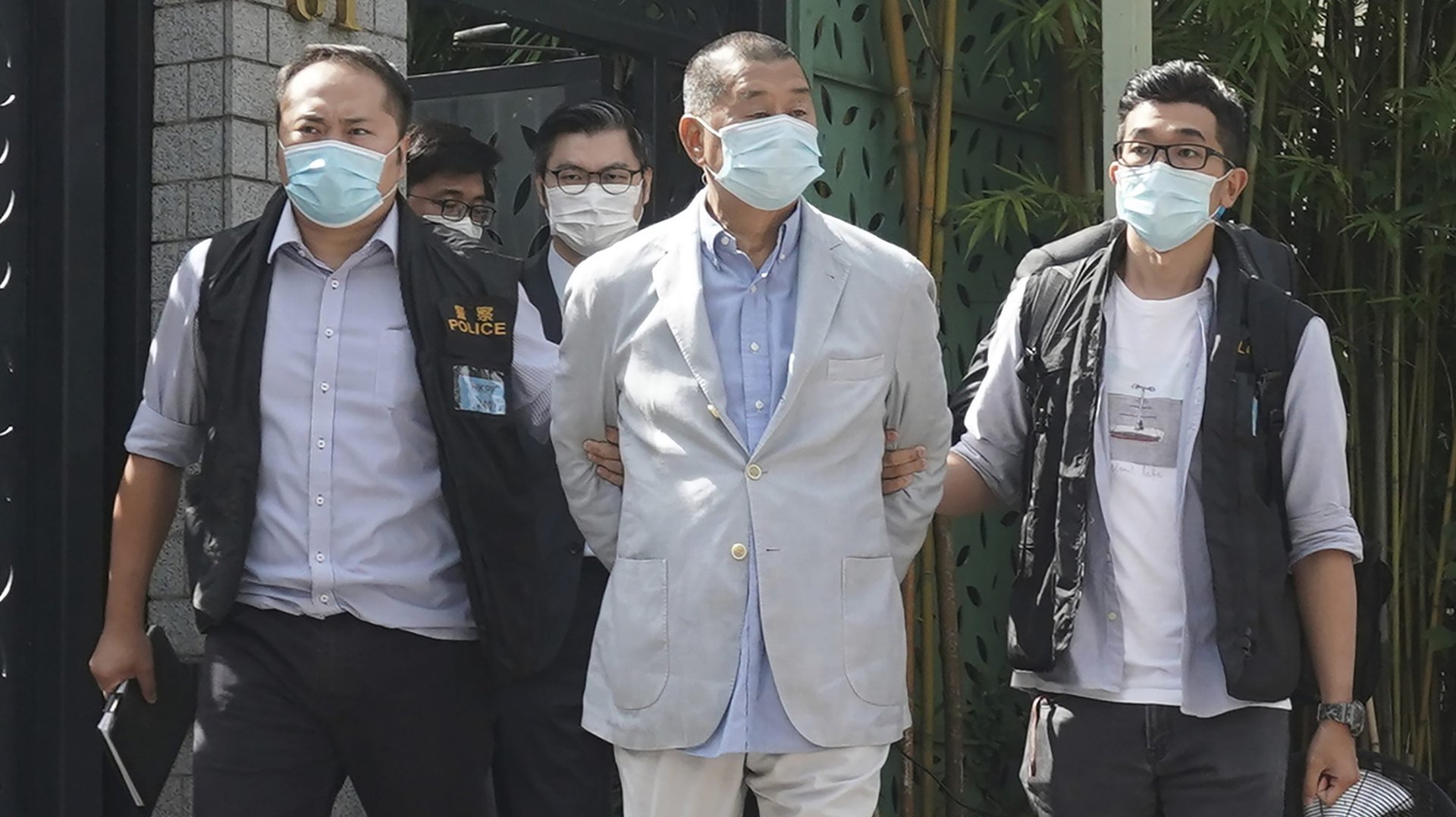Beijing is moving to demolish one of the only Hong Kong newspapers it doesn’t control
Apple Daily has long been at the forefront of Hong Kong’s democracy movement, reporting on protests closely and keeping a check on government officials through dogged shoe-leather journalism. Now, Beijing is making some of its most dramatic moves yet to effectively shred the publication, one of the few remaining newspapers that is openly critical of the government.


Apple Daily has long been at the forefront of Hong Kong’s democracy movement, reporting on protests closely and keeping a check on government officials through dogged shoe-leather journalism. Now, Beijing is making some of its most dramatic moves yet to effectively shred the publication, one of the few remaining newspapers that is openly critical of the government.
Police this morning arrested the paper’s founder, Jimmy Lai, on suspicion of colluding with foreign forces—a crime under the new national security law punishable by up to life in prison. Officers then carried out an hours-long raid on the publication’s offices, cordoning off large sections of the newsroom and carting away containers full of confiscated material, as the newspaper’s staff live-streamed the proceedings. Nine men in total, including Lai’s two sons, have been arrested. Mark Simon, a top aide to Lai and an American citizen, is also wanted, but is not in Hong Kong. Lai is the most prominent figure so far to be arrested under the new national security legislation.
In a statement, the Foreign Correspondents’ Club of Hong Kong condemned the arrests and the raid, calling the developments “a direct assault on Hong Kong’s press freedom and signal a dark new phase in the erosion of the city’s global reputation.”
Lai, a prominent media mogul and pro-democracy activist, has for years been lampooned by the Chinese government and state media outlets as a traitorous troublemaker who is directed by the US and inciting protesters to take action against the government. Lai is well-known in the US, and had been in regular contact with US politicians. At the height of the city’s protests last year, he met with vice president Mike Pence and secretary of state Mike Pompeo to discuss the now-shelved extradition bill. It is unclear what exactly Lai was arrested for, as those meetings were conducted before the new security law took effect on June 30.
After his arrest, a handcuffed Lai was paraded through the newsroom, where the police raid was ongoing. Lai is no stranger to such hostile treatment: staff from pro-China newspapers are regularly stationed outside his residence, which itself has been firebombed on multiple occasions. Lai was also arrested in February and charged with unlawful assembly, and has long prophesied his arrest.
The arrest of Lai and the newsroom raid is the latest, and most high-profile, in a string of assaults on press freedom in Hong Kong. Already, numerous international news organizations are facing delays in getting visas for their journalists, and the New York Times announced last month that it would move part of its Hong Kong office to Seoul as a result of problems obtaining work visas. Police also barred major outlets, including Reuters, Agence France-Presse, and the Associated Press from attending a police briefing today. Meanwhile, the city’s public broadcaster, RTHK, is facing a government probe, after being forced to suspend a satirical show that poked fun of the police. In recent years, people with close China ties (pdf) have come to dominate Hong Kong’s media landscape. Lai is a rare exception.
In a city where big business interests, which overwhelmingly tilt pro-Beijing, control much of the local economy, many other local newspapers have had to adjust their coverage so as not to lose advertisers, which remain a crucial revenue stream. Apple Daily has pointedly not toned down its reporting, in part because many advertisers have already boycotted the publication. Next Digital, the publisher of Apple Daily, reported a loss of $53 million in the last fiscal year. The company’s share price surged over 300% today as supporters flocked to buy its stock.